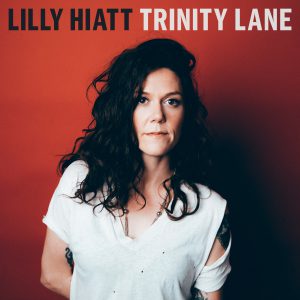Lilly Hiatt
Trinity Lane
New West

Cooking up a volatile brew of anger, need, and scarred optimism, Lilly Hiatt tells vivid stories of a life in flux on her bracing third album. While the sound of Trinity Lane encompasses everything from brooding garage rockers to jangly country-tinged laments to sentimental ballads, Hiatt’s commanding presence and eloquent songs tie everything together. Candid and plainspoken, she crafts stark vignettes, exclaiming, “I get bored so I wanna get drunk/I know how that goes/So I ain’t gonna touch it,” on the title track, revisiting a lost romance on “The Night David Bowie Died” and cautiously offering her secrets to a lover on “So Much You Don’t Know.” Given her DNA—she’s the daughter of the great singer-songwriter John Hiatt, and sometimes echoes his vocal inflections—Hiatt’s talent is no surprise, but the credit for a work this powerful should go entirely to her.















